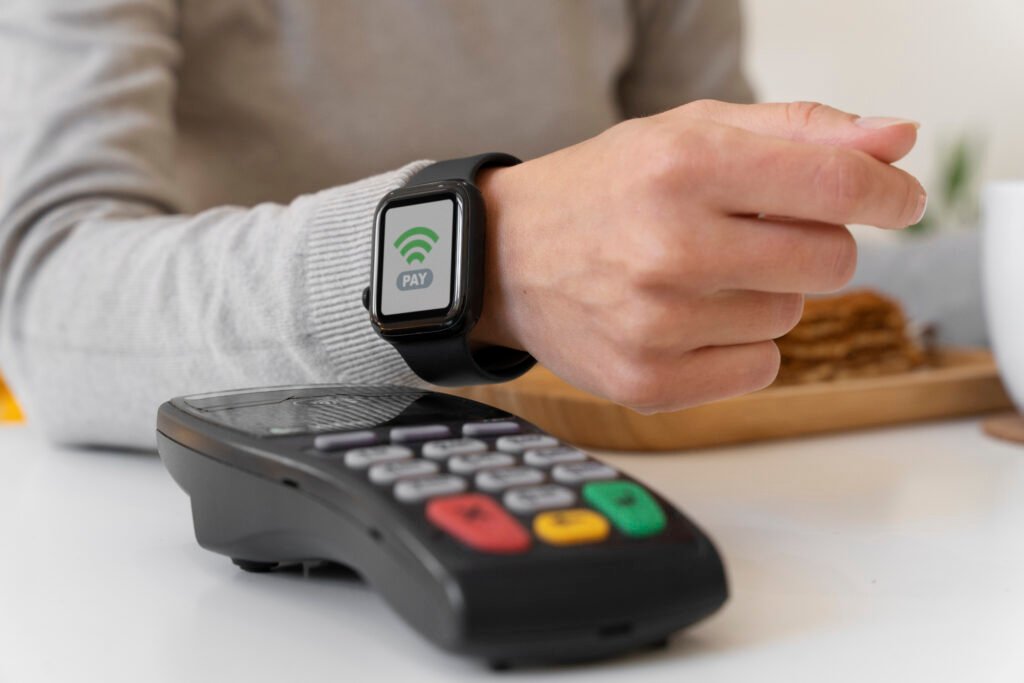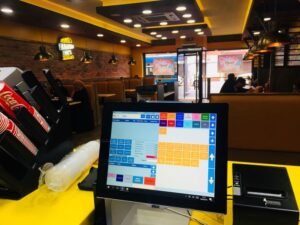In today’s digital world where every business and industries rely on efficient and effective methods to manage business operations and transactions. A point of sale (POS) system is very essential to fulfill these requirements. If you are running a small business or large organization you need a POS system that can manage your day-to-day transactions, inventory management, or other business operations.
In this comprehensive guide, we will cover all about POS systems, what is POS systems, and everything you need to know.
What is a POS System?
A Point of sale (POS) system is the combination of POS hardware, software, and other payment services that you can use to make the purchase. These POS are available in physical forms like POS hardware and online POS systems that can record the customer purchase online. The best POS system can record the customer purchases, accept the payment, and provide you the payment receipts which you can send to the customer through text or email. If we talk about how to choose the right POS system for your business its all about your business requirements if you are working online and physically these POS perfume different and both are different. It can manage the inventory management, track employee records, and generate reports of products.
Why is a POS System Important for Businesses?
A POS system is essential because it automates or streamlines numerous business-related procedures. It helps with sales transactions, inventory management, reporting and evaluation of finances, and personnel supervision. Companies can make better decisions and increase productivity thanks to the advanced capabilities of modern POS systems.
What Industries Commonly Use POS Systems?
POS systems are widely used in a variety of industries, such as hospitality, retail, and service to customers. Retail firms that sell physical things, hospitality companies like hotels and restaurants, and customer service businesses like spas, beauty salons, and therapists are some of the most common users of POS systems.
How Does a POS System Work?

POS systems perform a variety of services to assist retailers optimize their operations. Here’s how they operate:
Transaction Initiation:
-
-
- A cashier or buyer selects products to purchase.
- Products can be scanned or entered manually in the point-of-sale system.
-
Item Recognition and Pricing:
-
-
- The point of sale (POS) system recognizes each item using its barcode or entered SKU.
- Rates are obtained from a system’s data or encoded into it.
-
Calculation of Total Cost:
-
-
- The POS system computes the overall cost depending on the prices of the picked goods.
- It could include discounts, taxes, or promotions as programmed.
-
Payment Processing:
-
-
- The customer selects the payment option (cash, credit card, debit card, etc.).
- The point of sale (POS) system safely conducts the transaction, typically combining with payment processors or readers for credit cards.
-
Receipt Generation:
-
-
- The system produces a receipt that details the purchased items, pricing, taxes, and method of payment.
- Invoices can be generated, emailed, or texted according to the customer’s preferences.
-
Inventory Management:
-
-
- A point-of-sale system adjusts the amount of inventory within as things are sold.
- It may generate orders of purchase for restocking and send out low-stock notifications.
-
Reporting and Analytics:
-
-
- The point of sale (POS) system collects information about transactions for analysis and reporting needs.
- Owners of companies can use sales, patterns, and performance data to inform making choices.
-
Customer Management:
-
- Buying information is saved for the customer’s profile.
- This data can be utilized for future suggested selling, specific advertising, and loyalty and rewards.
What are the Different Parts of a POS system?
To further comprehend how a POS system operates, we must first consider the many parts that a point-of-sale system can include.
- POS software
- POS Hardware
- POS terminal
- Card reader
- Barcode scanner
- Receipt printer
- Cash drawer
Types of POS Systems
There are numerous kinds of retail POS systems, each of which is appropriate for a different business. It is advisable to become acquainted with all sorts to determine which one is best for the small company you run.
The following are the primary types of POS systems:
Server POS System
A server for a retail point-of-sale system is one in which the collected data is stored on-site at the firm. This kind of situation is often associated with the most expensive setup and regular upkeep rates. A typical server system requires you to be physically there to use it. To build a server POS system, you will need to source hardware from a variety of vendors.
Cloud-Based POS System
Cloud-based solutions save sales data on the Internet rather than on a local server. After you’ve set up your preferred point-of-sale software on your hardware, you’ll be able to see your data from anywhere with an internet connection.
Cloud-based Point of Sale (POS) software is compatible with both physical and online retailers, as opposed to server systems, which solely service physical businesses. With sales from online stores increasing year after year, implementing cloud-based POS solutions in your organization can greatly enhance revenue.
Hybrid POS System
A hybrid POS system combines elements from onsite and cloud-based platforms.It’s an excellent option if you want to have the finest of both worlds. Hybrid point-of-sale systems are ideal for organizations that have both offline as well as online outlets. The Lightspeed POS system serves as an example of a hybrid system, which includes both on-site and online functions.
Mobile POS System
Mobile POS systems utilize an Android tablet or Apple as the point of sale. This solution usually just requires two types of hardware: a mobile phone or tablet and a credit card scanner. You can use Point of Sale mobile devices at pop-up stores, trade exhibitions, and other events outside of your actual store. A mobile sale POS system can also help real stores cut customer waits and speeds up payment. For instance, a Square POS system may be used on a smartphone or tablet without the need for additional hardware.

Features of a POS System
Here are some features of the POS system:
- Checkout
- Payment processing
- Inventory management
- Reporting and analytics
- Employee management
- Customer relationship management(CRM)
- Multichannel sales
Benefits of POS System
- Better inventory management
- Better security
- 24/7 access to data
- Cost reduction
How Can You Choose the Right POS System?
If you want to set up a POS system in Dubai for your business, consider some tips that help you choose the right one.ITDS Smart System offers you the best POS system for any industry at affordable prices.
- Understand Your Business Needs
- Consider Ease of Use.
- Evaluate Hardware and Software Requirements
- Check Integration Capabilities
- Ensure Security and Compliance
- Evaluate Customer Support
- Read Reviews and Get Recommendations
Bottom Line
A POS system is an essential tool for today’s businesses, providing much more than processing transactions. A POS system can transform companies of all sizes by increasing efficiency and accuracy, delivering useful information, and boosting customer experiences. Understanding the components, features, and types of POS systems allows you to make a smart choice and select the best system for your business needs, which in turn drives progress and achievement.




